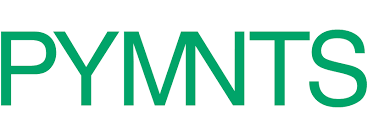
Voices of the CFO: Finance Chiefs Say Automating the Back Office Needs to Move to the Front Burner
When companies suddenly had to adapt to remote-first work policies early in the pandemic, chief financial officers (CFOs) not only positioned them to weather the storm but also modernized back-office operations by leaps and bounds.
Now that pandemic fears have subsided, the pressure is still on to monitor the new digital workflows it bequeathed — and update them continuously to keep pace with the competition.
During interviews for the PYMNTS series “A Day in the Life of a Digital-First CFO,” finance chiefs shared how their teams are rising to the challenge.
Being a Champion for Digital Transformation
The CFO is uniquely positioned to take a more introspective role within the enterprise, Fortis CFO Dennis McLaughlin told PYMNTS in August 2021.
Watch the video: CFOs Getting Pressed to Go Beyond Paper, Process Reductions With Digital Upgrades
While other business leaders are peering outward toward customers, investments and business partners, the CFO must focus internally on enhancing operations and driving growth. As such, McLaughlin said, finance leaders are well-positioned to take on the challenging task of digital transformation.
“It’s the chair that we sit in, and where we look in the organization that is unique relative to all of my colleagues,” McLaughlin said. “I think that positions us best to implement these changes and be the champion for them across the organization.”
Embracing a Forward-Looking Mindset
While it’s imperative that CFOs can choose technologies that can best address their organization’s needs today, it’s just as important to consider the flexibility and scalability of those solutions, Quantexa CFO Arvi Chana told PYMNTS in January 2021.
Read more: Keeping a Forward-Looking View in FinTech Adoption
“Is that process going to work when I’m double the size? Four times the size?” Chana said, highlighting the importance of strategic timing of technology adoption. CFOs must have a clear strategy in mind to drive the business forward, he added, and should embrace a forward-looking mindset when developing a modernization strategy.
Understanding Each Department’s Needs
When digitization strategy touches so many areas of the back office, it is important for CFOs to develop a deep understanding of departments and personnel beyond the finance team, Alan Lacan, who was Limonetik CFO at the time and is Thunes head of finance today, told PYMNTS in June 2021.
See more: CFOs Look Outside Their Silos to Optimize Order to Cash Flows
Adoption of technology rarely occurs in a vacuum. On the contrary, tools can affect the workflows of a variety of departments, so it is important for the CFO to take the lead on ensuring that new solutions can seamlessly integrate with each other, Lacan said.
Taking the time to understand each department’s needs — and approaching modernization at an enterprise-wide vantage point — enables CFOs to ensure that digital disruption yields positive outcomes.
“You have to keep in mind that each department has a different road map,” Lacan said. “They have their own priorities. You have to make sure there is no friction in working to achieve a common goal.”
Collaborating With Other Professionals
Reveal CFO Patrick Garvey told PYMNTS in February 2021 that his role within the company exclusively requires him to not focus on day-to-day accounting or reporting but rather to devise and promote company-wide strategies in collaboration with other professionals within leadership roles.
Read more: How Finance Automation Backs a Complex Business Model
With data and automation being such critical components of achieving those goals, the CFO is also fostering a close relationship with the IT department, a collaboration that Garvey suggested should no longer be considered outside of the norm within any firm that wishes to modernize.
“In our company, the head of IT is at an equal level to me,” Garvey said. “We’re equals, and by definition, we have to collaborate together. That indicates how important it is in this company and should be in just about any company.”
Providing Strategic Leadership
As the healthcare space broadens its support for telehealth and other types of remote services, digitization continues to be at the forefront of the sector’s evolution. The back office, however, needed some time to catch up, Nurx CFO Ori Franco told PYMNTS in January 2021.
See more: Healthcare’s Back Office Catches up to the Industry’s Digitization Push
The pandemic and work-from-home requirements opened the door to modernize and optimize in ways that can help the company scale well into the future, and data remains at the heart of that effort.
“The role of the CFO is to provide strategic leadership to the company using financial data that the finance organization has access to,” he said. “Having the right data and tools to underpin those decisions is critical, and getting access to that accurate, integrated data in real time is really critical to making those decisions.”
BY PYMNTS | Source: https://www.pymnts.com/buy-now-pay-later/2023/alma-counts-on-numeral-for-automated-merchant-payments/

